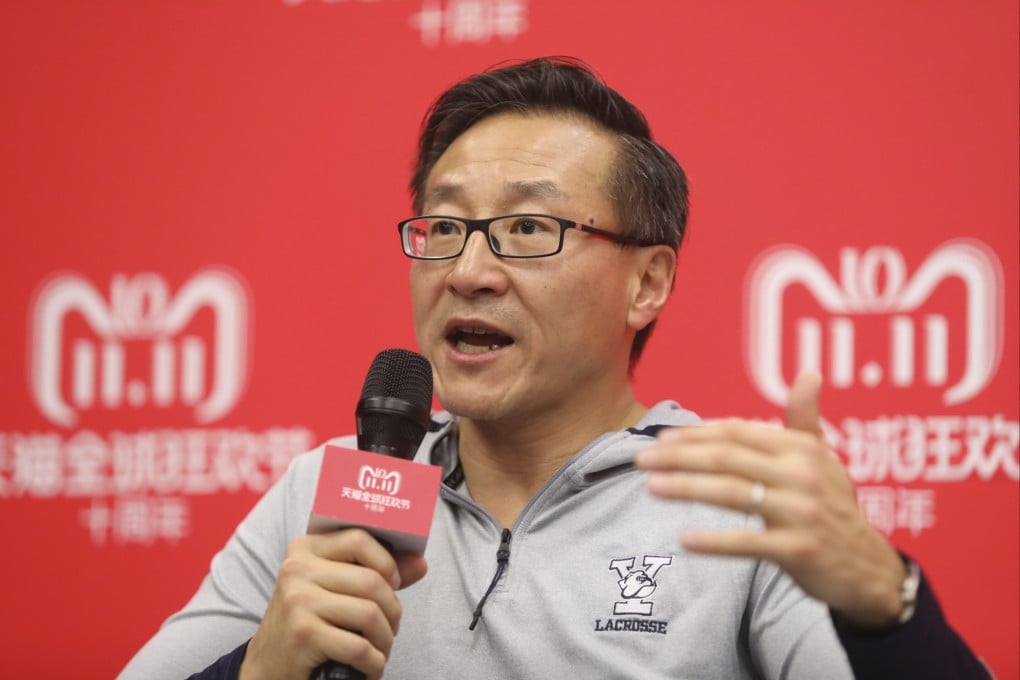How did New World’s Adrian Cheng decide to buy a piece of virtual land? Property scion says smoking a cigar with Alibaba’s Joe Tsai provided the spark
- Non-fungible tokens (NFTs) and the metaverse were among the most-discussed topics at the Jumpstarter 2022 forum
- Cheng said that after a ‘great chat’ with The Sandbox, he realised that the concept was ‘so simple [in terms of] ownership and commercialisation’

Cheng, an influential investor in property as well as the arts in Hong Kong, grabbed attention in the city’s financial and technology community last year by announcing an investment, in a personal capacity, into blockchain platform The Sandbox, owned by the Hong Kong gaming and blockchain unicorn Animoca Brands.
Cheng said during a panel discussion moderated by Tsai this week at the Jumpstarter 2022 start-up event held by the Alibaba Entrepreneurs Fund, that his idea of putting money into virtual property actually came about after he and Tsai had “cigars one night”.
Tsai said he remembered introducing a Post project to Cheng about using the newspaper’s expertise, including infographics, to rebuild Hong Kong’s landmarks in a digital way in The Sandbox. The Post’s metaverse experience, a digital recreation of the Hong Kong Star Ferry Pier, opened to the public for free from March this year in The Sandbox.
“I wanted to get a big piece of land, bigger than [SCMP’s], next to your land,” said Cheng, explaining his thoughts. After a “great chat” with The Sandbox, he realised that the concept was “so simple [in terms of] ownership and commercialisation”.